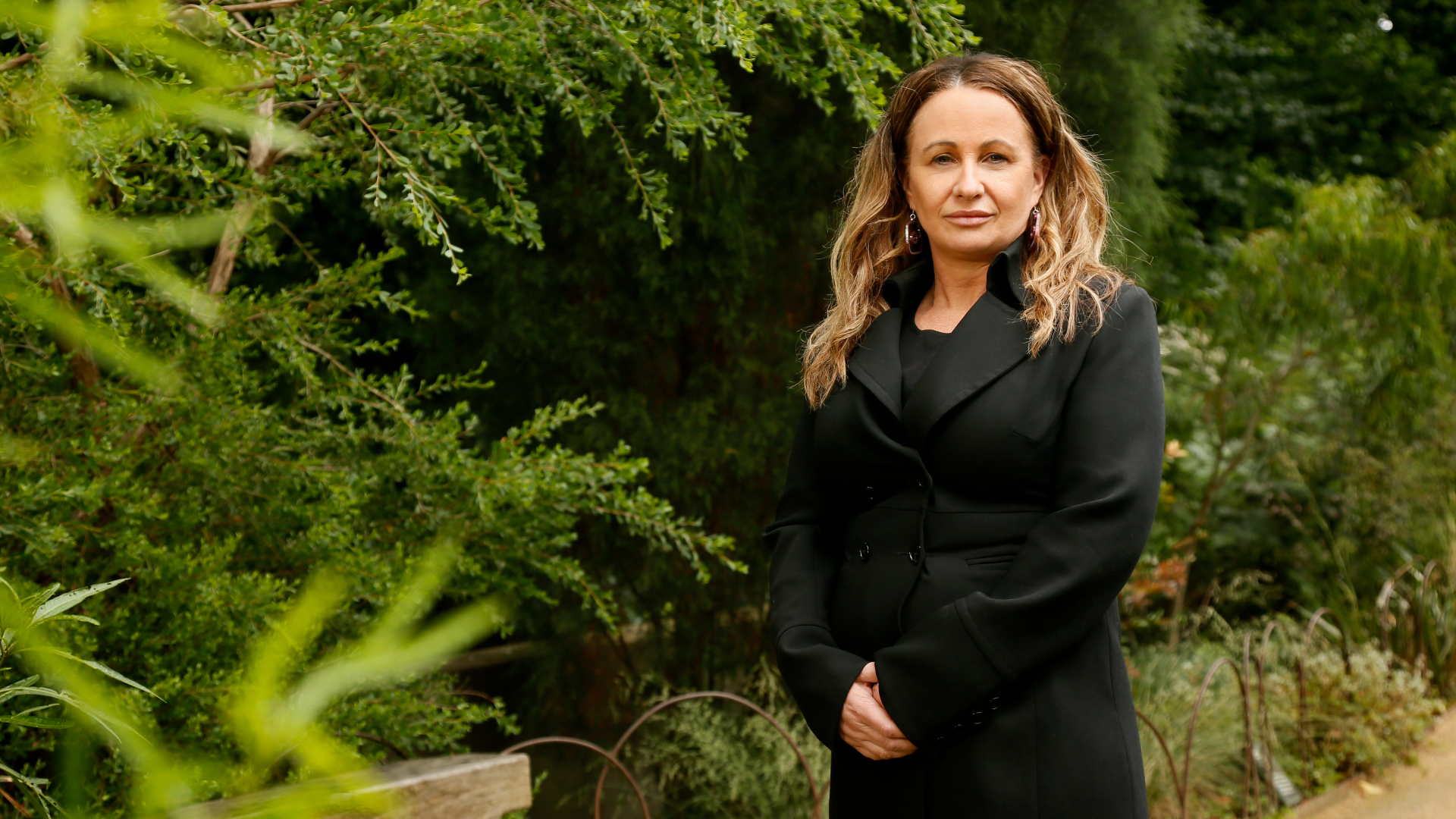Truth-telling takes the stage this reconciliation lecture

Commissioner Sue-Anne Hunter, Deputy Chair Yoorrook Justice Commission was this year’s speaker at Swinburne’s Annual Reconciliation Lecture
In summary
- Commissioner Sue-Anne Hunter, Deputy Chair Yoorrook Justice Commission, gave the address at the 2022 Swinburne Annual Reconciliation Lecture
- The Swinburne Annual Reconciliation Lecture is organised by the National Centre for Reconciliation Practice and advances understandings in the wider community on reconciliation
- The Yoorrook Justice Commission is the first formal truth-telling body into injustices experienced by Indigenous Peoples in Victoria
Truth-telling took the spotlight as Commissioner Sue-Anne Hunter, Deputy Chair Yoorrook Justice Commission made her address and answered questions at this year’s Swinburne Annual Reconciliation Lecture.
The Swinburne Annual Reconciliation Lecture is hosted by the National Centre for Reconciliation Practice. The annual lecture advances understandings in the wider community on reconciliation in Australia.
How to build reconciliation
At this year’s event, proud Wurundjeri and Ngurai Illum Wurrung woman Commissioner Hunter asked: “How do you reconcile a history built upon falsehood?”
Many of us were raised with Australian history that starts with Captain Cook, with the world’s oldest living culture a mere footnote.
“Data from the 2020 Australian reconciliation barometer showed that over one third of Australians surveyed disbelieved or were unsure of fundamental aspects of our shared history. That includes the presence of Indigenous peoples at the time of European arrival, the occurrence of mass killings of First Peoples, their incarceration, forced removal from their land and restriction of movement,” says Commissioner Hunter.
On the other hand, 89 per cent of Australians believed in the importance of the country undertaking a formal truth-telling process. She explains that reconciliation begins by ending the silence.
Australia must reconcile with its past before we move forward – and this is a shared responsibility.
Executive Director Reconciliation Strategy and Leadership and Executive Director National Centre for Reconciliation Practice, Professor Andrew Gunstone, who emceed the event, said truth-telling is a critical component of a genuine reconciliation process and is a fundamental principle of Swinburne’s Elevate 2020-23 RAP.
Professor Gunstone also shared that since the Annual Reconciliation Lectures and the Annual Barak-Wonga Orations were established in 2016, there has been a very diverse range of topics discussed – such as personal stories, astronomy, treaties, self-determination, and education – and the fundamental area of truth-telling has been present in all the lectures.
The importance of the Yoorrook Justice Commission
The Yoorrook Justice Commission is the first formal truth-telling body into injustices experienced by Indigenous Peoples in Victoria. The Commission was formally established in May 2021 to hear, record and address these truths historically until the present day.
“Yoorrook is anything but conventional,” Commissioner Hunter says.
“Yoorrook is the result of continued advocacy and activism, and we owe a vast debt of gratitude to the generations of First Peoples who fought tirelessly for this. Yoorrook has been extremely hard fought-for.”
Yoorook means ‘truth’ in the Wemba Wemba/Wamba Wamba language, which is spoken in the north-west of Victoria.
Yoorrook is a historic opportunity for both Indigenous Peoples and other Victorians to finally listen to each other and create a new story together. Together with Aboriginal and non-Aboriginal Victorians, it creates a path that leads to truth, understanding and transformation, and builds a shared understanding of our history.
Watch it back
Commissioner Hunter shared some of the initial findings from the Yoorrook Justice Commission, including two videos of interviews and emerging themes arising from the concerns of First Nations peoples.
She also encouraged all people to make a submission to Yoorrook and keep abreast of the stories coming out of the Commission, whether they are Indigenous or non-Indigenous.
Watch the full address:
-
Media Enquiries
Related articles
-

- Social Affairs
Swinburne is committed to reconciliation “Now More Than Ever”
Swinburne held events across our three campuses to mark National Sorry Day and National Reconciliation Week.
Friday 31 May 2024 -

- Social Affairs
Landmark Swinburne study exposes ongoing discrimination and homophobia
More than half of LGBTIQA+ young people in Australia have witnessed discrimination in community-based sport, according to a new Swinburne University of Technology study.
Friday 17 May 2024 -

- Social Affairs
Too many renters swelter through summer. Efficient cooling should be the law for rental homes
Summer is coming – and it’s starting earlier, becoming hotter and lasting longer. As the hot weather hits, many renters will be sweltering in their homes. The World Health Organization recommends a list of actions for people to deal with heat. At the top of the list is “keep your home cool”. But for many renters, this isn’t possible.
Wednesday 22 November 2023 -

- University
- Social Affairs
In 5 years, this Australian astrophysics lab reached 50% women. Here’s how they did it
Many organisations, from community sporting groups to the United Nations, have set themselves a target of gender parity: ensuring half of staff or members are women. Gender parity is desirable because training and retaining equal halves of a population’s available talent influences an organisation’s growth, problem-solving capacity and future-readiness.
Friday 17 November 2023 -

- Social Affairs
Swinburne students win third consecutive Advertising Capstone Challenge
Four Swinburne students have designed a winning campaign for BONDS Bloody Comfy Period Undies.
Friday 10 November 2023

